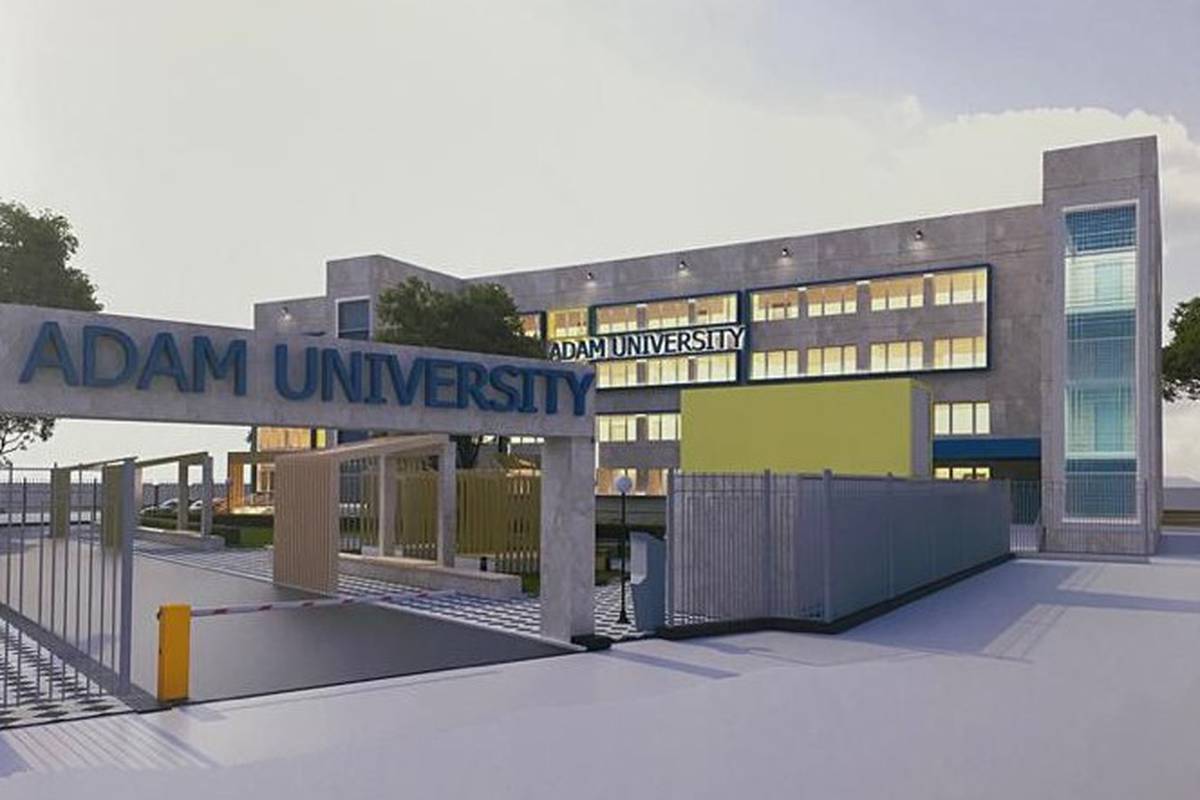
☝️ At a glance
- Complete MBBS → MD (Internal Medicine) → DM (Cardiology) (13-15 years).
- Licensing: Obtain NMC registration and board certification to practice.
- Career & Salary: Cardiologists earn ₹10 LPA (entry-level) to ₹1 Cr+ (experienced).
- Challenges: Requires years of study, intense training, and high-pressure decision-making.
- Study Abroad: FutureMBBS helps students pursue MBBS abroad or secure NEET ranks in India.
Cardiologists are medical professionals specializing in diagnosing and treating diseases related to the heart and blood vessels. Given the increasing prevalence of cardiovascular diseases, the demand for cardiologists in India and worldwide is rising. If you aspire to become a cardiologist, this guide will walk you through the exact steps required after 12th, including education, specialization, licensing, salary prospects, and challenges.

Become a global doctor with MBBS abroad!
Studying abroad can be affordable and stress-free with futureMBBS:
- World-recognized universities with English-taught programs
- On-site support in partner university cities
- Guaranteed placements & internships for hands-on experience
From selecting universities and supporting you with the application process to orientation and finding accommodation – we are at your side.
Overview of cardiology as a career
Cardiology is a specialized field of medicine that focuses on diagnosing, treating, and preventing heart-related diseases. A cardiologist manages conditions like heart disease, coronary artery disease, heart rhythm disorders, and heart failure. This specialty plays a vital role in cardiovascular health, helping patients maintain optimal heart health through diagnostic tests, such as blood tests, physical exams, and advanced procedures like cardiac catheterizations and interventional cardiology.
Importance of cardiologists in Healthcare
Cardiologists are medical professionals who contribute to both preventive and interventional care, which is crucial for managing the cardiovascular system. They work in diverse healthcare settings, including hospitals, research institutions, and private clinics, where they collaborate with cardiac surgeons in treating complex conditions like heart attacks, heart transplants, and congenital heart defects. The demand for interventional cardiologists is growing with the increase in heart diseases globally.
Growing demand for cardiologists in India and Abroad
Globally, the World Health Organization (WHO) reports that cardiovascular diseases (CVDs) are the leading cause of death, making cardiology an essential and growing field. India faces a shortage of trained cardiologists, creating a significant opportunity for aspiring professionals. To become a cardiologist, one must complete an MBBS degree, followed by a residency program in internal medicine, and a cardiology fellowship program. As the field advances in areas like preventive cardiology, heart transplant, and cardiac catheterization, cardiologists will continue to play a critical role in improving heart health worldwide.
Why become a cardiologist?
Passion for cardiovascular health:
A cardiologist is at the forefront of diagnosing, treating, and preventing heart-related diseases like heart disease, heart failure, and coronary artery disease.
The field allows you to directly impact cardiovascular health by helping patients manage and improve their heart and blood vessels health.
Cardiology combines complex diagnostic tests, patient care, and medical knowledge, making it intellectually fulfilling.
Career growth and high salary potential:
Cardiologists are among the highest-paid medical professionals, with a high average salary that increases with experience, specialization, and location.
Specializing in areas like interventional cardiology, transplant cardiology, or heart rhythm disorders opens doors to higher-paying opportunities.
Cardiologists can work in diverse settings like hospitals, private practices, or research institutions, offering flexibility and career security.
Evolving field with continuous learning:
Cardiology is a dynamic field, with advancements in areas like cardiac catheterizations, heart transplant procedures, and the development of preventive cardiology strategies.
As a cardiologist, you will continually stay up to date with the latest medical research and innovations, making it a great career for those passionate about lifelong learning.
There is a significant emphasis on hands-on training and clinical exposure, providing a wide range of experiences and specialties to explore.
Scope for medical research and innovation:
Cardiologists contribute to medical research focused on innovative treatments for cardiovascular diseases, heart rhythm disorders, and heart disease prevention.
The field offers opportunities to engage in cutting-edge clinical trials, contributing to medical knowledge and advancing heart health.
With ongoing advancements in cardiology education and medical technology, cardiologists have a unique chance to contribute to medical practice on a global scale.
Impact on public health and preventive medicine:
With cardiovascular diseases being the leading cause of death globally, cardiologists are vital in preventive cardiology, working to reduce the incidence of heart disease through early diagnosis and lifestyle management.
As a cardiologist, you can make a significant impact on public health by promoting heart health, educating patients, and preventing heart attacks and other life-threatening conditions.
Diverse career pathways:
The field of cardiology offers multiple career pathways, including clinical practice, academic medicine, medical research, and roles in cardiac surgeons or healthcare management.
With specialized training and a cardiology fellowship, aspiring cardiologists can choose from a range of sub-specialties like interventional cardiology, pediatric cardiology, or cardiac imaging.
How to become a cardiologist after 12th: step-by-step guide
Step | Requirement |
|---|---|
Step 1 | Complete 10+2 with Science (Physics, Chemistry, Biology) |
Step 2 | Appear for Medical Entrance Exams (NEET-UG) |
Step 3 | Obtain an MBBS Degree from a recognized medical college |
Step 4 | Complete Internship and Residency Program |
Step 5 | Pursue a Postgraduate Degree (MD in Internal Medicine or Pediatrics) |
Step 6 | Enroll in a Cardiology Fellowship Program |
Step 7 | Obtain medical licensure and Board Certification |
Step 8 | Gain Clinical Experience and Specialization |
Internship and residency: A crucial step
After completing medical school and obtaining an MBBS degree, aspiring cardiologists must undergo residency training in internal medicine. This residency is a pivotal step in becoming a cardiologist, providing essential hands-on experience and exposure to a wide range of cardiovascular diseases.
Key learning areas in residency:
Diagnostic tests and cardiac imaging:
Residency offers an in-depth focus on diagnostic techniques, such as ECGs, echocardiograms, and MRI scans, which are essential for diagnosing heart diseases. Mastery of these diagnostic tools is crucial for identifying conditions like heart disease and heart rhythm disorders.
Blood pressure management and heart rhythm disorders:
An integral part of residency is learning how to manage blood pressure and treat conditions like arrhythmias (irregular heartbeats). Understanding how to control these factors plays a critical role in preventing more severe cardiovascular issues.
Cardiac catheterization and electrophysiology:
Aspiring cardiologists gain hands-on experience in performing advanced procedures such as cardiac catheterization and electrophysiology. These interventional techniques are essential for treating complex heart conditions and allow residents to understand the intricacies of heart disease treatment.
Through residency, aspiring cardiologists develop the skills and expertise required to become competent medical officers in the field of cardiology. This comprehensive training sets the foundation for a successful career, enabling residents to pursue specialized areas within cardiology, such as interventional cardiology or heart failure management.
Postgraduate program in cardiology
MD in Internal Medicine or Pediatrics
After completing a bachelor's degree in medicine (MBBS), the first step to become a cardiologist is pursuing an MD degree in Internal Medicine or Pediatrics. This 3-year program helps doctors establish a solid foundation in health-related courses and general medical knowledge. It covers a broad range of medical conditions, including those impacting the cardiovascular system, which is essential for anyone aiming to specialize in cardiology.
DM in Cardiology – super specialty course
Once the MD is completed, aspiring cardiologists can proceed to a Doctorate of Medicine (DM) in Cardiology program. This 3-year super specialty course delves deep into heart-related diseases, advanced cardiac imaging, and treatment techniques such as interventional cardiology and heart failure management.
This specialized training allows doctors to gain expert knowledge and skills to manage complex cardiovascular diseases, ultimately preparing them to pursue a career in cardiology. The DM in Cardiology is an essential step for those who aspire to become leading cardiologists, equipping them with the expertise to tackle heart conditions at the highest level.
Licensing and board certification
To become a cardiologist in India, obtaining a medical license is crucial. After completing the necessary education and training, including cardiology courses and a DM in Cardiology, doctors must register with the Medical Council of India (MCI) or the National Medical Commission (NMC) to legally practice. This licensure ensures that the doctor meets the standards required for providing medical care in the country.
Board certification is another essential step for any aspiring cardiologist in India. After completing the required training and obtaining licensure, cardiologists can pursue certification through recognized professional bodies such as the Indian College of Cardiology or other relevant organizations. This certification confirms that the medical professional has the expertise to diagnose, treat, and manage cardiovascular diseases effectively. By achieving licensure and certification, doctors demonstrate their commitment to quality healthcare and a successful career in cardiology.
Specializations in cardiology

Interventional cardiology
This specialization focuses on non-surgical procedures to treat heart conditions, such as cardiac catheterizations, angioplasty, and stent placements. Interventional cardiologist use advanced cardio vascular technology to open blocked arteries, improving blood flow and preventing heart attacks. It’s a critical career path for those wanting to make an immediate impact on heart health.
Electrophysiology
Electrophysiologists specialize in diagnosing and treating heart rhythm disorders using techniques like pacemaker implants and catheter ablation. This subspecialty offers opportunities to practice cardiology in innovative ways, ensuring patients maintain a healthy heart rhythm.
Heart failure and transplant cardiology
Cardiologists who specialize in heart failure and transplant cardiology manage advanced heart conditions and perform heart transplants. This specialization requires in-depth knowledge of osteopathic medicine and cutting-edge treatments to extend and improve patients’ lives.
Preventive cardiology
Preventive cardiology focuses on lifestyle modifications and early interventions to prevent the onset of heart diseases. This specialization is ideal for those who want to contribute to cardiovascular health before issues arise, offering healthcare professionals a unique way to promote heart health on a large scale.
Each of these specializations provides distinct opportunities for those who want to become a cardiologist and impact patients' heart health in different ways.
Clinical experience and continuing medical education (CME)
Why clinical Experience Matters
Gaining hands-on experience is crucial for anyone aspiring to become a cardiologist. During training in a medical college, students learn to perform diagnostic tests, assist in cardiac surgeries, and master techniques in interventional cardiology. Clinical rotations help in understanding real-world patient management and decision-making. After completing an MBBS or BSc Cardiology, candidates undergo rigorous hospital-based training, which refines their practical skills before entering a master's program or fellowship programs.
Importance of continuing medical education (CME)
Medical advancements in coronary artery disease, cardiac imaging, and heart failure management evolve constantly. To stay at the forefront of medical practice, a cardiologist in India must engage in Continuing Medical Education (CME) through workshops, certifications, and research. After clearing entrance exams, those who pursue cardiology must continue learning throughout their careers to provide the best patient care and adapt to new treatment protocols.
Essential skills for a successful cardiologist
1. Medical knowledge and expertise in the cardiovascular system
To become a cardiologist, a deep understanding of the cardiovascular system is essential. Medical professionals must have expertise in diagnosing and treating heart diseases, including coronary artery disease, heart failure, and heart rhythm disorders. Training in medical schools and hospitals helps build this foundation, equipping future cardiologists with both theoretical knowledge and practical experience.
2. Strong communication skills
A cardiologist in India must effectively communicate with patients, explaining complex medical conditions in simple terms. Strong interpersonal skills are crucial for discussing treatment plans, guiding families through difficult decisions, and collaborating with other healthcare professionals.
3. Ability to handle high-pressure hospital settings
Cardiology is a high-stakes field, often requiring quick decision-making in emergencies like heart attacks and cardiac arrests. Cardiologists must stay composed in intense hospital settings, ensuring the best possible patient outcomes.
4. Research and academic medicine skills
Many cardiologists play a role in medical research, contributing to advancements in cardiac treatments and technologies. Obtaining a medical license after clearing the National Eligibility exams allows specialists to practice legally while engaging in cutting-edge research to improve patient care.

Study medicine abroad with 100% support!
futureMBBS offers full support to make your dream of studying medicine abroad a reality.
- Hassle-free admission guidance
- Fast-tracked visa processing
- Post-arrival support, including accommodation assistance
Cardiologist salary in India
Experience Level | Average Salary (Per Year) |
|---|---|
Entry-Level (0-5 Years) | ₹10-15 Lakhs |
Mid-Level (5-10 Years) | ₹20-35 Lakhs |
Experienced (10+ Years) | ₹50 Lakhs - 1 Crore |
Salaries vary based on specialization, location, and hospital setting.
Challenges faced by cardiologists
Long years of education and residency training
High-stress environment and patient responsibility
Maintaining a balance between medical practice and research
Become a cardiologist abroad with futureMBBS partner universities
Why study cardiology abroad?
Studying abroad offers aspiring cardiologists exposure to advanced medical schools, globally recognized medical degrees, and better clinical practice opportunities. Many students from India choose international universities to gain high-quality education and training, which helps them become a cardiologist with a strong global foundation.
For students looking to become a cardiologist in India, studying abroad can be a strategic move. futureMBBS assists students in securing MBBS admission abroad, offering complete support in choosing the best medical schools. After completing their education, graduates can return to India as cardiologists and pursue further specialization.
Top universities across Europe provide excellent programs for those wanting to become a cardiologist. Countries like the Czech Republic, Latvia, Hungary, and Poland offer world-class education with practical exposure. Institutions such as Charles University Prague, Semmelweis University Budapest, and Medical University Poznan are recognized for their contributions to cardiology education.
With futureMBBS, Indian students can confidently take the first step toward becoming a cardiologist in India while gaining international experience and training. This opportunity ensures that students meet global medical standards and return to India as leading cardiologists in the future.
Top universities for studying cardiology abroad
Country | Top universities |
|---|---|
Czech Republic | Charles University Pilsen, Charles University Prague, Masaryk University Brno, Palacky University Olomouc |
Latvia | Stradins University Riga, University of Latvia |
Lithuania | University of Health Sciences Kaunas |
Hungary | Semmelweis University Budapest, Medical University Pécs, Medical University Szeged |
Cyprus | University of Nicosia |
Poland | Medical University Poznan, Medical University Lodz |
Slovakia | Jessenius University Martin, Comenius University Bratislava, UPJS Košice |
Croatia | University of Split |
Romania | Medical University Cluj, Victor Babes University Timisoara |
By choosing one of these universities through FutureMBBS, students can build a successful career and become a cardiologist with international expertise while having the option to practice as a cardiologist in India after their education.
Conclusion
Becoming a successful cardiologist requires dedication, in-depth knowledge, and extensive clinical training. With the right education, residency training, and specialization, aspirants can build a fulfilling career in cardiology education and medical practice.
For students aiming to become a cardiologist abroad, futureMBBS guides them through the MBBS admission process at top international universities. Those who wish to pursue cardiology in India can rely on NEETsheet by futureMBBS, which ensures they achieve top ranks in NEET and secure admission in the best Indian medical colleges. Get in touch now for a free career consultation!
Read more similar articles:
Thinking of pursuing MBBS abroad? Don’t just dream it, do it!Your medical career abroad starts here!
FREQUENTLY ASKED QUESTIONS
FAQs about “how to become a cardiologist"
How many years does it take to become a cardiologist?
It takes approximately 13-15 years after 12th to become a qualified cardiologist.
Do cardiologists need NEET?
Yes, clearing NEET-UG is mandatory for admission into MBBS programs in India.
Is becoming a cardiologist difficult?
Yes, cardiology is a challenging medical field, requiring intensive study and practical training.
Can I do cardiology without MBBS?
No, an MBBS degree is mandatory before pursuing cardiology specialization.




